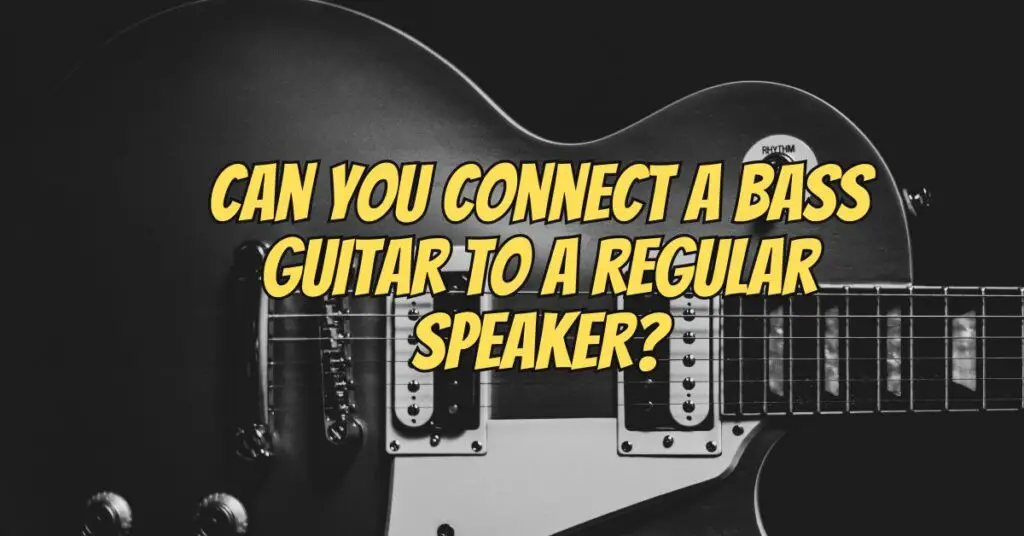Many musicians and bassists wonder if it’s possible to connect a bass guitar to a regular speaker, such as a guitar amplifier or a PA speaker, without causing damage to the equipment. While it is technically feasible, there are essential considerations and potential limitations that you should be aware of before attempting to connect your bass guitar to a regular speaker. In this article, we will explore the options, safety precautions, and potential challenges associated with this setup.
1. Impedance Matching
One of the primary concerns when connecting a bass guitar to a regular speaker is impedance matching. Impedance is the electrical resistance that the speaker presents to the amplifier or instrument. Bass guitar amplifiers and cabinets are typically designed to match the impedance of bass guitar pickups, which is usually 4, 8, or 16 ohms. Regular guitar amplifiers and speakers may have different impedance ratings, often lower (e.g., 4 ohms).
It’s crucial to match the impedance of your bass guitar to the impedance rating of the speaker to avoid damage to your equipment. Mismatches can result in overheating, reduced power output, and potential damage to the amplifier.
2. Wattage Rating
Bass guitars produce low-frequency sounds that demand more power from amplifiers and speakers compared to regular electric guitars. Regular guitar amplifiers and speakers may not be designed to handle the lower frequencies and power requirements of a bass guitar. Using a regular speaker that is not designed for bass can lead to distortion, reduced sound quality, and possible damage to the speaker.
3. Frequency Response
Bass guitars produce frequencies that extend into the lower range of the audible spectrum. Regular guitar amplifiers and speakers may not reproduce these low frequencies accurately, resulting in a loss of low-end definition and clarity.
Options for Connecting a Bass Guitar to a Regular Speaker:
1. Use a Bass-Amp:
The safest and most optimal way to amplify a bass guitar is by using a dedicated bass amplifier or amplifier cabinet designed for bass frequencies. These amplifiers are specifically built to handle the low frequencies and power requirements of bass guitars.
2. DI Box:
If you need to connect a bass guitar to a regular PA system or a speaker, consider using a Direct Injection (DI) box. A DI box can help match impedance and provide a balanced signal to the PA system or mixer, preserving the quality of the bass signal and avoiding damage to the speaker.
3. Amplifier with Line Out:
Some bass amplifiers have a line-out feature that allows you to connect the amplifier to a mixer, PA system, or external speaker while still maintaining proper impedance matching. This can be a useful option for gigging bassists who need to connect to different sound systems.
Conclusion
While it is technically possible to connect a bass guitar to a regular speaker, it comes with risks and limitations, especially concerning impedance matching, wattage rating, and frequency response. To ensure the best sound quality and avoid potential equipment damage, it is recommended to use a dedicated bass amplifier or a DI box when amplifying a bass guitar. These solutions are designed to handle the unique characteristics and requirements of bass frequencies, providing a safe and reliable way to amplify your bass guitar in various settings.

